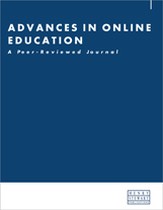The role of aesthetics in redesigning accessible information literacy modules
Abstract
The outbreak of COVID-19 added an increased sense of urgency to creating accessible online materials for higher education professionals, including academic librarians, as they explored new ways to engage with users online. Librarians who relied on in-person sessions to provide information literacy instruction to students shifted to synchronous and asynchronous instruction methods. This paper shares the experiences of an instruction librarian tasked with evaluating and redesigning a set of asynchronous information literacy modules for first-year undergraduate students in the summer of 2020. The evaluation and redesign were informed by contemporary debates about the design of online instructional materials from a web design and instructional design (ID) perspective. In particular, the author sought to investigate the claim that increasing the accessibility of online learning objects decreases their aesthetic appeal. Discussions of aesthetics and design are largely absent in the professional literature of library and information science (LIS), yet they are relevant, as many librarians perform ID duties. Since definitions of aesthetics are far-ranging, the author employed a specific framework discussed by Brown et al. — contrast, alignment, repetition and proximity (CARP) — for assessing the aesthetic value of the modules. After utilising a variety of tools to evaluate the accessibility of the modules along with the CARP framework, the author concluded that increasing the accessibility of the modules also increased their aesthetic value.
The full article is available to subscribers to this journal (subscription is free).
Author's Biography
Rachel Edford Trnka is an Instruction & Engagement Librarian at the University of Central Florida. She has an interdisciplinary background with a PhD in English and an MA in liberal studies as well as an MLIS. Her research interests include online pedagogy, information literacy instruction and the history of librarianship. She has presented her work at various conferences, including the Charleston conference, the Designing for Digital (D4D) conference and the Distance Library Services conference. Her articles have appeared in the New Review of Academic Librarianship, Journal of Library and Information Services in Distance Learning and College English.
Citation
Edford Trnka, Rachel (2023, March 1). The role of aesthetics in redesigning accessible information literacy modules. In the Advances in Online Education: A Peer-Reviewed Journal, Volume 1, Issue 3. https://doi.org/10.69554/TOMM8660.Publications LLP
